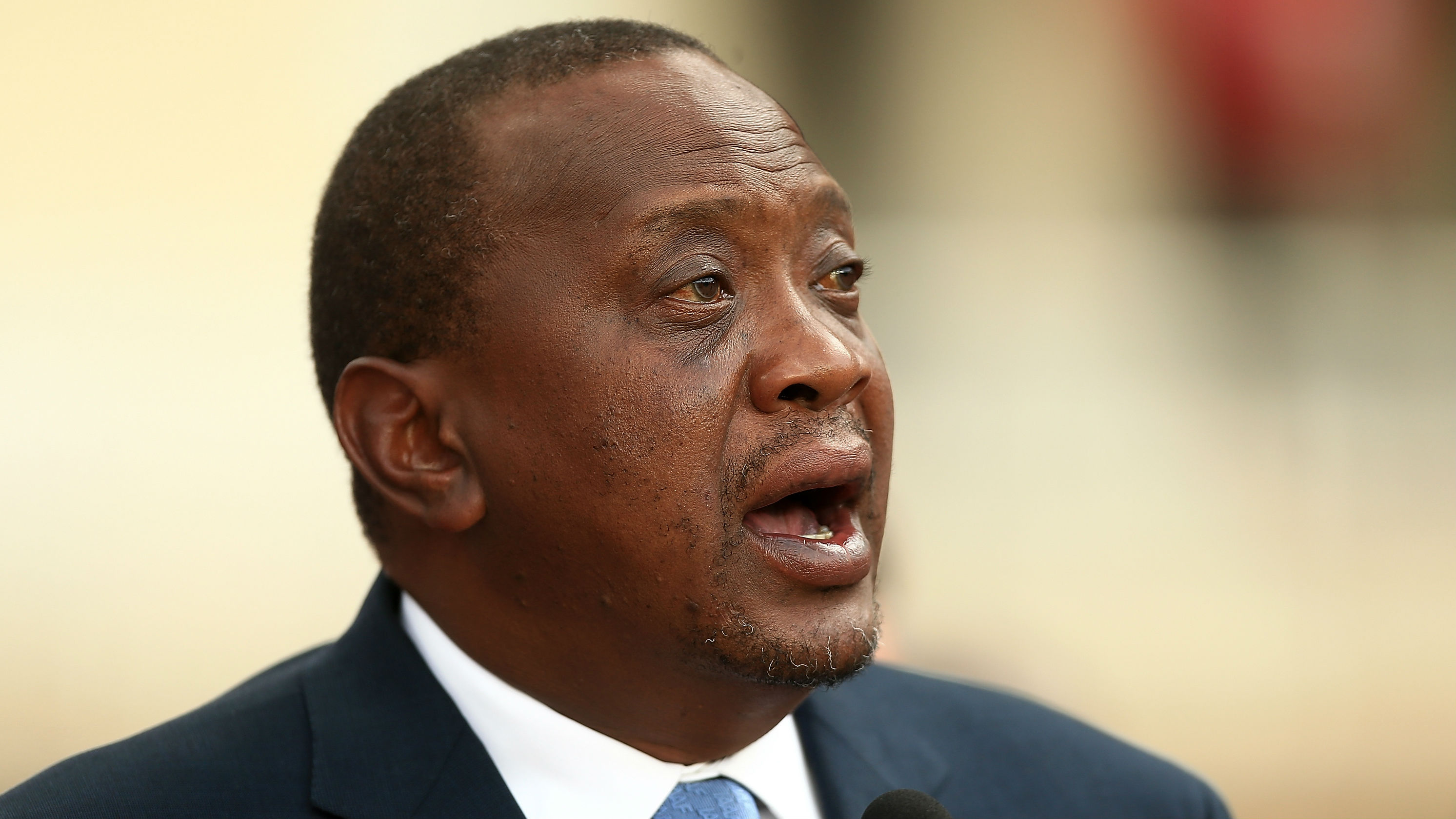Kenya Supreme Court upholds election of President Kenyatta
East Africa’s richest economy fears a resumption of the violence that has already claimed 60 lives

A free daily email with the biggest news stories of the day – and the best features from TheWeek.com
You are now subscribed
Your newsletter sign-up was successful
Kenya’s Supreme Court has unanimously upheld the election of President Uhuru Kenyatta but the political crisis is unlikely to end there.
The six judges have decided that the legal challenges demanding the cancellation of the polls were without merit, Reuters reports, clearing the way for Kenyatta to be sworn in on 28 November.
The ruling was met with applause in the courtroom, but the decision could spark more bloodshed.
The Week
Escape your echo chamber. Get the facts behind the news, plus analysis from multiple perspectives.

Sign up for The Week's Free Newsletters
From our morning news briefing to a weekly Good News Newsletter, get the best of The Week delivered directly to your inbox.
From our morning news briefing to a weekly Good News Newsletter, get the best of The Week delivered directly to your inbox.
“The ruling is unlikely to end the worst political crisis in a decade in east Africa’s richest and most developed economy, which has seen more than 60 people killed in political violence in three months,” The Guardian writes.
Kenyans took to Twitter to urge calm, the Nairobi News reports.
Judges initially upheld a petition by the opposition candidate Raila Odinga, who claimed the electoral commission's IT system was hacked during the August elections to elect Kenyatta by a margin of 1.4 million votes. Elections were rerun in October despite a boycott by Kenyatta's main rival Raila Odinga.
In a statement through his adviser, Odinga said the ruling wasn’t a surprise and may have been taken “under duress” but he didn’t provide any evidence of that claim.
A free daily email with the biggest news stories of the day – and the best features from TheWeek.com
-
 Jeff Bezos: cutting the legs off The Washington Post
Jeff Bezos: cutting the legs off The Washington PostIn the Spotlight A stalwart of American journalism is a shadow of itself after swingeing cuts by its billionaire owner
-
 5 blacked out cartoons about the Epstein file redactions
5 blacked out cartoons about the Epstein file redactionsCartoons Artists take on hidden identities, a censored presidential seal, and more
-
 How Democrats are turning DOJ lemons into partisan lemonade
How Democrats are turning DOJ lemons into partisan lemonadeTODAY’S BIG QUESTION As the Trump administration continues to try — and fail — at indicting its political enemies, Democratic lawmakers have begun seizing the moment for themselves
-
 Epstein files topple law CEO, roil UK government
Epstein files topple law CEO, roil UK governmentSpeed Read Peter Mandelson, Britain’s former ambassador to the US, is caught up in the scandal
-
 Iran and US prepare to meet after skirmishes
Iran and US prepare to meet after skirmishesSpeed Read The incident comes amid heightened tensions in the Middle East
-
 Israel retrieves final hostage’s body from Gaza
Israel retrieves final hostage’s body from GazaSpeed Read The 24-year-old police officer was killed during the initial Hamas attack
-
 China’s Xi targets top general in growing purge
China’s Xi targets top general in growing purgeSpeed Read Zhang Youxia is being investigated over ‘grave violations’ of the law
-
 Panama and Canada are negotiating over a crucial copper mine
Panama and Canada are negotiating over a crucial copper mineIn the Spotlight Panama is set to make a final decision on the mine this summer
-
 Why Greenland’s natural resources are nearly impossible to mine
Why Greenland’s natural resources are nearly impossible to mineThe Explainer The country’s natural landscape makes the task extremely difficult
-
 Iran cuts internet as protests escalate
Iran cuts internet as protests escalateSpeed Reada Government buildings across the country have been set on fire
-
 US nabs ‘shadow’ tanker claimed by Russia
US nabs ‘shadow’ tanker claimed by RussiaSpeed Read The ship was one of two vessels seized by the US military